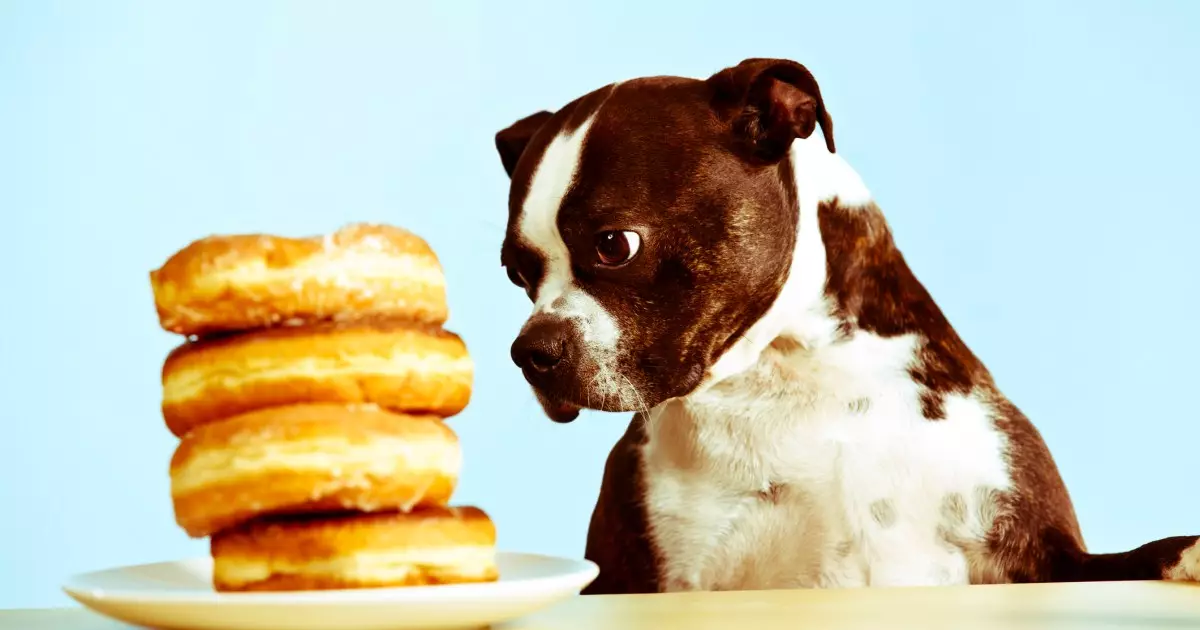Doughnuts, often seen as an indulgent treat for humans, harbor risks that are far less obvious but significantly more dangerous for dogs. While their sweet, appealing appearance might tempt pet owners to share a bite, it’s crucial to understand that these pastries pack ingredients that can jeopardize your dog’s health. Their high sugar content, unhealthy fats, and the presence of potentially toxic additives like cocoa make doughnuts far from a safe snack for our four-legged friends. The human love for sweets must never translate into feeding habits for pets, especially when it comes to processed foods like doughnuts that are designed for human taste buds, not canine physiology.
The Invisible Threat of Ingredients and Their Consequences
At the core of the issue are the ingredients common in doughnuts. The excessive refined sugar present in most doughnuts is particularly insidious; dogs have no need for sugar, and consuming it can lead to gastrointestinal issues such as diarrhea, vomiting, or even pancreatitis. The fats, largely derived from butter and oils, can cause inflammation of the pancreas, a condition that can be life-threatening if not promptly addressed. More alarmingly, any doughnut containing cocoa presents a serious toxic risk. Cocoa, which is a common ingredient in chocolate doughnuts, can trigger seizures, abnormal heart rhythms, and in severe cases, could become fatal. The small amount of chocolate in some doughnuts might seem harmless to humans, but for dogs, even minimal exposure can have devastating effects.
When Accidents Happen: Responding to Ingested Doughnuts
If you discover that your dog has snatched and eaten part of a doughnut, immediate action is necessary. The severity of the situation hinges on the doughnut’s ingredients and the amount ingested. A plain cake doughnut might cause only mild stomach upset, but when the doughnut contains chocolate or other harmful additives, veterinary intervention becomes urgent. Veterinarians often recommend bringing the dog in for evaluation, especially if chocolate has been consumed. Time is critical, as early treatment can make the difference between a mild upset and a life-threatening condition. Preventive measures should always be prioritized—keeping doughnuts out of your pet’s reach is an easy way to avoid accidental poisoning and health crises.
Rethinking Treats and Embracing Safer Alternatives
For dog owners who want to treat their pets, it’s essential to understand that not all foods are suitable or safe. Human foods, especially sweets and processed snacks like doughnuts, serve no nutritional purpose for dogs. Instead, opting for specially formulated dog treats or natural, healthy snacks like carrots, apple slices, or commercial dog chews is a better choice. These options provide mental stimulation and satisfy cravings without risking toxicity or health issues. By educating yourself on what’s safe and what’s dangerous, you uphold your responsibility as a pet parent to nurture a long, healthy, and joyful life for your furry friend.
In essence, doughnuts are a tempting but dangerous indulgence—not only for humans but also for dogs. While seeing a mischievous pup savoring a treat might be adorable, the reality is that their health is much too precious to gamble with refined sugar, fats, and toxic ingredients. Prioritize your pet’s well-being by steering clear of human foods that could harm them, and instead, cherish and share safe, wholesome snacks that reinforce your love and responsibility.

